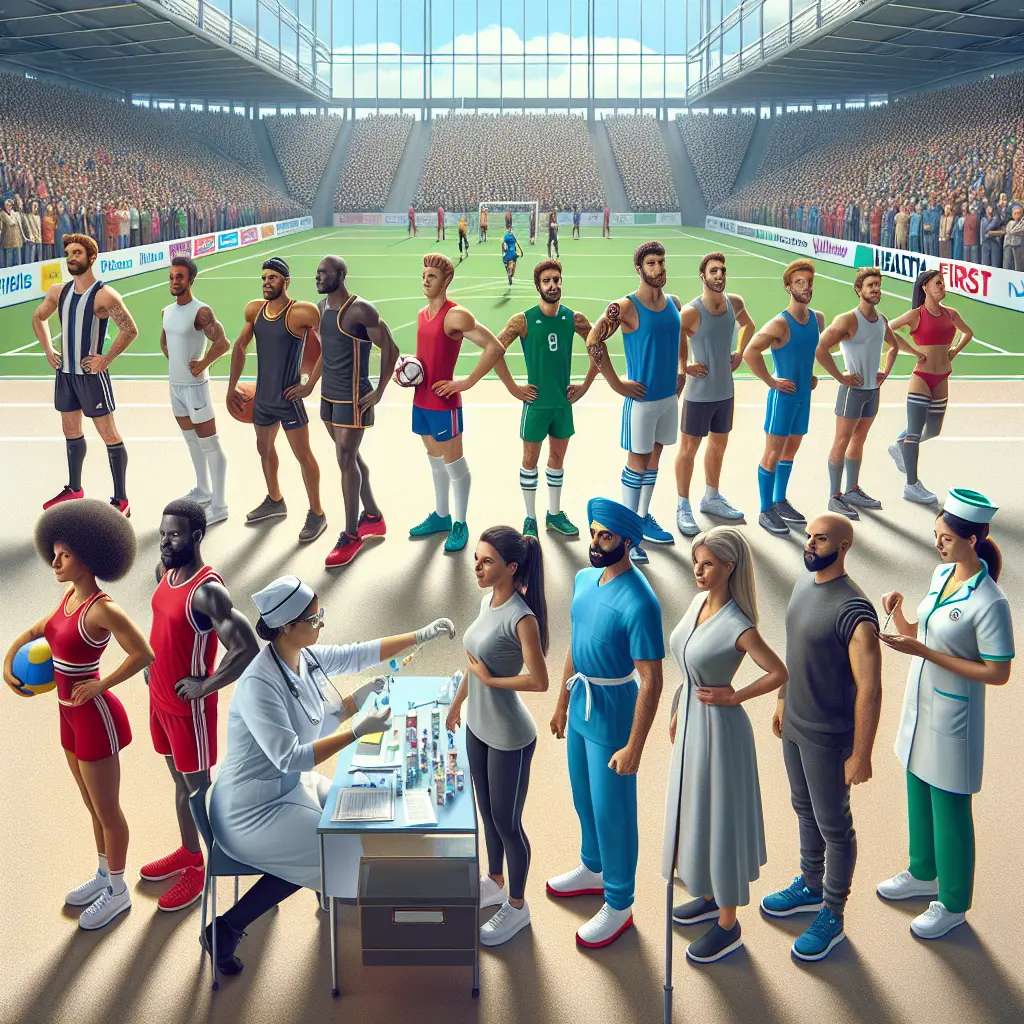
The pandemic has reshaped numerous facets of our lives, one of which includes the sports and athletics domain. With the rise of COVID-19, various health policies, particularly vaccine mandates, have been implemented to manage and mitigate the spread of the virus among athletes and spectators alike. These mandates have sparked a significant discourse about the balance between public health and personal freedom, especially in sports settings. This blog post examines the impact of vaccine mandates on sports and athletic events participation, integrating recent news and updates that mirror our current health climate.
Recent Surge in COVID-19 Cases and Its Implications on Sports
As fears mount due to a recent surge in COVID-19 cases, attributed to hidden spreads with lesser data and reduced testing (source needed), the sports industry is under scrutiny once more. The implementation of vaccine mandates in sports events has become a focal point in ensuring that the return to stadiums is both safe and sustainable. Such policies influence not only players but also the fans who attend these events. The uncertainty around virus transmission has led organizations to enforce stricter vaccine mandates sports policies, aiming to curb any potential outbreaks that could cause further disruptions in the schedules and training of athletes.
The Ripple Effects of Vaccine Mandates in Athletics
Vaccine requirements in athletics have ushered in a new era where health security plays a pivotal role in sports management. The impact of vaccine mandates on participation has been notable—teams and individual athletes must adhere to strict protocols to compete. For instance, athlete vaccination mandates ensure that all participating athletes are vaccinated, which has stirred both support and controversy across different boards and fan groups.
Moreover, sports participation vaccine policy isn't just about the athletes; it extends to everyone involved, including the coaching staff, sports event organizers, and the audience. This comprehensive approach helps in creating a controlled environment, reducing the risk of COVID-19 transmission.
Legal and Ethical Considerations
The introduction of vaccine mandates athletic events has also sparked legal debates over personal freedoms vs. public health responsibilities. Some argue that mandating vaccines infringes on personal rights, while others believe it's essential for the greater good, especially in densely packed settings like sports stadiums.
Impact on Athlete Performance and Well-being
The vaccination impact on athletes stretches beyond legalities and into their physical performance and mental health. Some athletes have reported feeling more at ease knowing their peers are vaccinated, which indirectly boosts their mental well-being and performance. However, the pressure to get vaccinated has also led to anxiety among others who may be hesitant about vaccines, thus affecting their mental state and focus—key components in competitive sports.
Navigating Through Misinformation
A critical challenge that has emerged alongside vaccine mandates is misinformation. Similar to the situation reported by Health Canada where public misinformation was rampant as the authority scrambled to correct internal miscommunication (source needed), the sports industry has had its share of myths and false information regarding COVID-19 vaccines. Sports bodies have had to double down not only on enforcing policies but also on educational campaigns aimed at athletes and fans alike.
Global Perspective on Sports Industry COVID-19 Policies
Internationally, sports bodies have adopted varying policies based on local COVID-19 impacts. Countries experiencing higher rates of infection have generally imposed stricter mandates. These international differences have occasionally affected international competitions, where athletes from different countries must meet the host country’s COVID-19 vaccine sports requirements.
Case Studies and Real-Life Examples
Several sporting events have already shown how effective these mandates can be. The Tokyo 2020 Olympics, held in 2021, is a prime example where strict athlete vaccination mandates were enforced. Despite fears of a massive outbreak, the games went ahead with minimal disruptions, largely attributed to the rigorous health safety measures implemented.
Future of Sports in a Post-Pandemic World
Looking forward, the sports industry must continue adapting its COVID-19 policies based on evolving scientific guidance and infection rates. Flexibility and responsiveness to changing scenarios will be crucial for the sustainable resumption of full-scale sports events.
Conclusion
The integration of vaccine mandates in sports has undeniably transformed how events are organized and participated in during the pandemic. While these measures are pivotal in safeguarding health, they also bring to light significant discussions about rights, ethics, and the future of sports in post-pandemic times. As we navigate these uncharted waters, it remains imperative for all stakeholders to work together towards solutions that respect individual choices while prioritizing community health.
Thank you for joining me in this exploration of a topic that continues to shape our experiences in sports amid these challenging times. Stay safe and stay informed.
Gregory Stanton